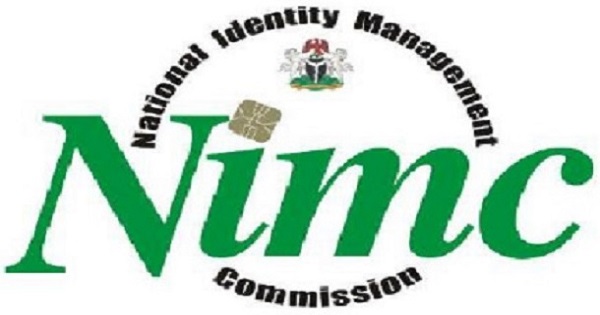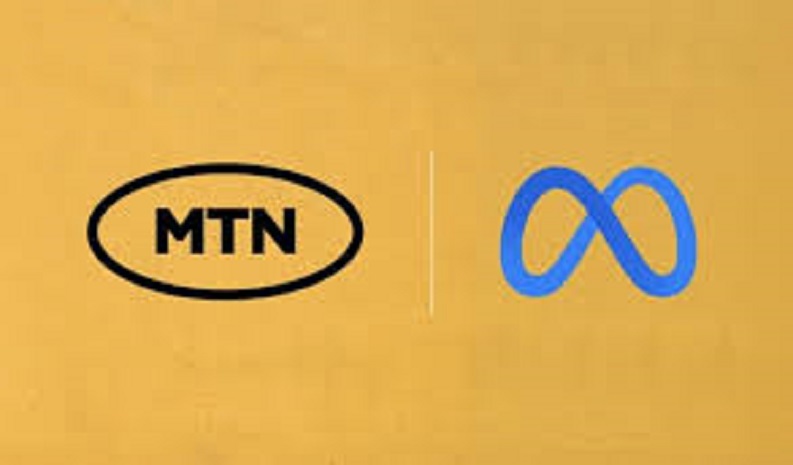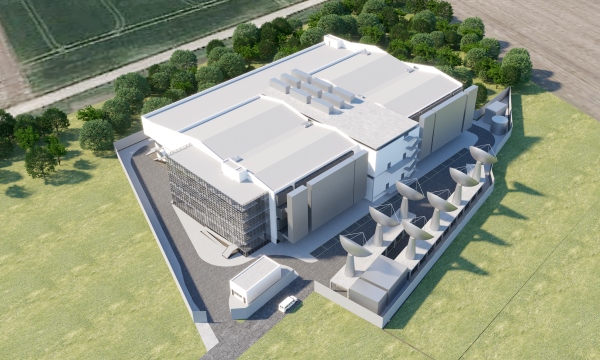Telecom
Banks, Telcos, Passport Issuance Suffer as NIMC Portal Breaks Down

Thousands of telecommunication subscribers nationwide seeking to retrieve their lost Subscriber Identity Module (SIM) cards or acquire new lines temporarily have been left stranded, following a technical glitch in the National Identity Management Commission (NIMC) portal that has grounded SIM-related services.

The affected NIMC portal enables telecom firms, the Nigerian Immigration Service, banks and other organisations to verify the National Identity Number of their customers before attending to them, in line with the Federal Government’s directive, according to Punch.
Following the directive by the Nigerian Communications Commission (NCC) for the inclusion of NIN in the requirements for all new and existing SIM cards, telecom firms are required to synchronise their SIM registration portals with the NIMC portal in order to verify the details of their subscribers.
Downtime enters sixth day, MTN, Glo, Airtel, 9mobile suspend SIM replacement/acquisition
However, the downtime experienced over the past five days by the NIMC portal has made it almost impossible for telecom firms to sell new SIM cards or retrieve lost lines.
According to a source at MTN who spoke on condition of anonymity because she was not authorised to speak on the matter, the downtime in the NIMC network which occurred late on Tuesday has brought SIM-related services to a halt.
The source said, “NIMC made it compulsory that before we can register a customer, we have to verify their NIN. The agency gave us a back route to its server. We connect to the server to verify NIN. When we verify, it will bring the record of the customer (the information the customer gave to NIMC while registering for NIN). We have to confirm the information the customer gave NIMC against what we have. There’s a way we connect to the NIMC server. It is that server that has been down since Wednesday.
“Before now, we didn’t need NIN to do this. We just use the customer’s valid ID card and SIM pack. If the customer does not have that, a sworn affidavit is okay. However, the introduction of NIN has changed that.”
Speaking on how the development might affect the company’s revenue, the official said, “We have registration stores (centres) that attend to hundreds of customers on a daily basis. In my service centre, we attend to not less than 200 customers in a day. We can’t really estimate the amount we are losing. Sometimes, after retrieving their lines, some customers can buy as much as N30,000 airtime. Some can buy as much as N5,000 airtime. So, any day we don’t do business, one service centre can lose up to hundreds of thousands of naira.”
When Punch correspondents visited some service centres of the telcos, officials and customers narrated their ordeals.
When one of Punch correspondents paid a visit to a Glo retail outlet in Lagos, a myriad of frustrated subscribers could be seen inside and outside the premises of the service centre.
Some of the subscribers told our correspondent that they had visited the outlet for days on end but they were not attended to due to the NIMC portal glitch.
“Seriously I don’t understand, and I called them to ask if everything was okay before I came here. I came the other day and they told me the same thing,” a disgruntled subscriber said after being told SIM-related services was yet to be restored due to the NIMC server glitch.
In a chat with one of Punch correspondents, a top official at a Glo retail outlet, who also pleaded anonymity, confirmed that with the new directive by the NCC, all telcos are compulsorily required to verify the NIN details of all subscribers before registering their new SIM cards.
“The problem is with the NIMC server. Their server is down; we can’t connect with them. We don’t know when it will be back. All the telecoms (companies) have network but because of NIN verification, we can’t work. It is a Federal Government directive: without NIN, we can’t do anything. Even if you want to buy SIM and register, without NIN, you can’t do it.”
In the same vein, subscribers were seen at an Airtel office lamenting their inability to retrieve their GSM lines despite repeated attempts to do so during the week.
A subscriber, who identified himself as Tochukwu, said, “This is my second time here and they have been saying the same thing, that they don’t have network. They’re saying it’s because of this NIN something. It’s quite disappointing because after today which is Saturday, I won’t have chance to do this again.”
A member of staff at the Airtel office, who did not want to be named, said the NIMC portal downtime had grounded SIM-related services of telcos across the country.
“You cannot get a new SIM until next week because there is no network. It’s not all network. It is this NIN something. It’s because we have to use your NIN to register the SIM. It affects all the telecommunications (companies),” he said.
NIMC, telcos, other stakeholders meet
As the problem lingered, it was gathered that the NIMC officials held a meeting with telcos and other stakeholders over the development.
It was learnt that NIMC advised telcos to temporarily revert to the vNIN platform until it is able to sort out its technical difficulties.
A top official privy to the development said, “NIMC confirms its service is still down and it doesn’t have an estimated turnaround time from its service provider. Hence, it is looking for alternatives to restore services over the weekend. However, NIMC has proposed that we use vNIN in the interim which the industry kicked against based on technical readiness and process issues.”
However, the meeting held with NIMC resolved that telcos must uphold certain rules while the glitch lingers.
It said, “New registration and SIM swap without a prior verified NIN and linked to our Know Your Customer will not be allowed until full service is restored.
“SIM swap for a previously verified NIN that has been linked to our (telcoms) Know Your Customer will be allowed to proceed based on when approval letter is received from NCC today (Friday).
“New SIM registration (additional SIM for an existing subscriber with a previously verified NIN and linked to our (telcoms) Know Your Customer) will be allowed to proceed based on when approval letter is received from NCC today (Friday).”
As of the time of filing this report, it could not be verified if the approval has been received or not.
According to some telcos’ officials, there is a feeling of discontent among operators due to the technical readiness and bottlenecks that would be required to make the temporary switch to the vNIN.
It was gathered that the telcos had kicked against it when it was suggested initially.
It is understood that the vNIN, which involves generating tokens, is riddled with technical concerns which the telcos are not prepared to commit resources to, particularly given the fact that the switch to the vNIN platform will only be on a temporary basis until the NIMC server glitch is resolved.
“Nobody is prepared for that one (tokenisation). It was supposed to start in January, but they (telcos) were not ready. Now they’re trying to push tokens. It’s possible they deliberately collapsed this one so they can push people to tokens. I don’t know why they do that. There has been no proper training (in how to use the token system),” a top official of a telecom firm said.
Also, officials of the Nigerian Immigration Service told our correspondents on condition of anonymity that passport application process was delayed in some passport offices because the NIN verification process was stalled.
They said some passport capturing appointments might have to be rebooked over the development.
“The glitch at the NIMC portal affected passport application process during the week. There was a need to verify applicants NINs. This could not be done. It started since late on Tuesday,” an immigration official, who spoke on condition of anonymity, said.
Also, top officials of some banks said the development affected account opening during the past week as applicants who had NIN as their only means of identification could not be attended to.
“Banks have various portals for verifying IDs. Those with NINs could not be attended to because the portal was down,” an official of FCMB said on condition of anonymity because he was not authorised to speak on the development.
When contacted, the NIMC spokesperson, Kayode Adegoke, who preferred to revert via SMS, had not responded to text messages as at the time of filing this report.
However, a public statement issued by the NIMC late on Saturday linked the problem to a downtime as a result of a “maintenance service.”
However, checks with some of the telcos reveal that prior information about this maintenance was not communicated to them.
NIN verification service down due to maintenance, says NIMC
In a statement, the NIMC said its NIN verification service was down due to maintenance being executed by its service provider.
The statement was titled ‘NIMC NIN verification service temporarily unavailable.”
It read, “The National Identity Management Commission wishes to inform the general public that its NIN Verification Service is temporarily unavailable due to the maintenance service being carried out by one of the Commission’s network service providers.
“The NIMC wants to assure the public that verification and authentication services would be restored once the maintenance is concluded.
“The commission apologises for any inconveniences this might cause our esteemed customers, and all hands are on deck to ensure speedy restoration. Meanwhile, the public can make use of the alternative tokenisation verification platform.”
Adeolu Ogunbanjo, president, National Association of Telecoms Subscribers (NATCOMS) said the association was aware of the NIMC server downtime and had been duly informed that the situation was being handled.
He said, “I learnt it’s a network issue. It’s something they’re looking at. I called two operators, especially the regulatory officials and they said they were working on it and that it would soon be restored. It’s rather unfortunate, but what do you do? I’m sure NCC knows about it.
“What I’ve not done is to talk to the NCC, and that is because the operators have said it’s an issue they are addressing. I want to go to Alausa tomorrow to find out what is happening apart from what the operators have told me.”
Telecom
MTN, Meta Partner to Enhance Voice and Video Calling Quality

MTN Group, Africa’s leading telecommunications provider, has joined forces with Meta to improve the quality and reliability of voice and video calls on real-time calling applications such as WhatsApp across 12 MTN markets.

The collaboration, which began at the Mobile World Congress (MWC) 2024, focuses on optimizing application-aware networks and network-aware applications to deliver a seamless and high-quality user experience. By leveraging data analytics and conducting comprehensive testing, MTN and Meta have successfully developed solutions that enhance the interaction between mobile networks and real-time calling applications.
Nigeria, MTN’s largest market, was the first to implement these enhancements. Early results indicate a remarkable 50% improvement in key performance indicators (KPIs), significantly enhancing the user experience for MTN Nigeria mobile users.
“This implementation further demonstrates our commitment to enhancing our customers’ digital experience.
“We’re pleased with the remarkable improvement in our real-time communication services, reflecting our commitment to innovative customer solutions,” said Yahaya Ibrahim, Chief Technology Officer (CTO) at MTN Nigeria.
Diego Marí, Head of Network Ecosystems Engineering at Meta, added, “The collaboration allows us to deploy advanced solutions for an unparalleled real-time experience in Nigeria and showcases our dedication to elevating service quality and improving user experience, while striving for continued efficiency in traffic delivery.”
The partnership underscores MTN and Meta’s shared vision of delivering cutting-edge solutions to enhance digital communication across Africa.
Telecom
Rack Centre Commissions Revolutionary LGS2 12MW Data Centre in Lagos

Rack Centre, West Africa’s premier Tier III carrier and cloud-neutral data centre, has unveiled its state-of-the-art 12MW IT Load Data Centre, the LGS2, in Lagos, Nigeria.

This innovative facility is set to redefine the digital landscape of Nigeria, offering unparalleled infrastructure, scalability, and reliability.
Speaking at the official commissioning on April 10, 2025, Rack Centre’s Chairman, Maher Jarmakani, emphasized the company’s dedication to innovation and sustainability.
He highlighted the LGS2 facility’s role in providing uninterrupted, energy-efficient solutions for enterprises, cloud providers, and financial institutions, reinforcing Rack Centre’s pivotal role in Nigeria’s digital transformation.
“This facility exemplifies our commitment to powering the nation’s digital future,” Jarmakani stated.
Governor of Lagos State, Babajide Sanwo-Olu, represented by his Deputy Chief of Staff, Sam Egube, praised the milestone during his keynote address.
He described the LGS2 facility as a cornerstone in Lagos’s journey toward becoming a globally competitive digital hub.
Sanwo-Olu also commended Rack Centre for prioritizing sustainability and energy efficiency in the centre’s design.
Rack Centre’s CEO, Lars Johannisson, expressed gratitude to the Lagos State Government for fostering an enabling environment to support the company’s vision.
Johannisson described the facility as a symbol of Nigeria’s commitment to cutting-edge technology, sustainable digitisation, and artificial intelligence.
He noted that with the LGS2 operational, Rack Centre’s data centre capacity would increase eightfold, solidifying its leadership in sub-Saharan Africa’s digital infrastructure space.
As a key player in Nigeria’s digital ecosystem, Rack Centre continues to connect people, businesses, and ideas, driving technological progress and cementing its legacy as a trailblazer in Africa’s digital economy.
Telecom
MTN Plans Second Public Offer in Nigeria

Ralph Mupita, president,MTN Group, has announced plans to reduce its shareholding in MTN Nigeria through a public offer after it returns to profitability.

The group aims to cut its stake from 76 percent to 65 percent in line with its longstanding commitment to deepen local ownership, according to ITWeb, South African tech publication.
Mupita, who disclosed the plan during an editors’ roundtable meeting this week, said “The only localisation we have as MTN Group is we have potentially a sell-down in Nigeria at some point in time, approximately 11 percent. This is something we have said long ago, that over time, we would want more Nigerians owning the company, and we are prepared to sell down to 65 percent. We are at around 76 percent,” he said.
The anticipated offer would mark MTN’s second major retail public offering in Nigeria, following its 2021 sale of 575 million MTN Nigeria shares to local investors.
That offer was oversubscribed, resulting in the allocation of 661.25 million shares, including a 15 percent greenshoe option. This reduced MTN’s stake in its Nigerian unit to 75.6 percent from 78.8 percent.
More than 126,000 investors participated in that round, including retail and institutional investors such as Nigerian pension funds, representing approximately 6.5 million contributors.
At the time in 2022, MTN Group announced plans to further reduce its stake to approximately 65 percent from 75.6 percent.
Mupita confirmed that the Group would only proceed with a new offer once MTN Nigeria resolves its negative equity position and resumes dividend payments.
Currently, MTN Nigeria’s shares are trading at N235 per share.
Despite reporting a revenue of N3.36 trillion in 2024, a 36.03 percent bump from N2.47 trillion in 2023, it posted a loss after tax of N400.44 billion, a 192.25 percent rise from N137.02 billion in 2023.,
This negative performance was driven by macroeconomic headwinds, including record inflation and a steep devaluation of the naira, which raised operating costs and wiped out investor value.
MTN Nigeria has fallen behind MTN South Africa as MTN Group’s largest revenue contributor.
However, the Group is projecting a rebound in 2025, citing key drivers such as recent tariff adjustments, operational restructuring, and improving macroeconomic indicators in Nigeria.
Speaking at the roundtable, Mupita highlighted that the Group is anticipating a V-shaped recovery in Nigeria’s service revenue. He pointed to the recent structural reforms, such as the removal of fuel subsidies, the naira stabilisation, and improved dollar availability.
“The continued normalisation of these factors, particularly naira stability, should have positive impacts on consumer spending power and our business operations,” Mupita noted in the Group’s financial statement for 2024 recently.

 E-Business2 days ago
E-Business2 days agoNITDA Warns Against Fake Google Play Store

 General News2 days ago
General News2 days agoLagos Commences Integration of NIN with State Single Social Register

 News2 days ago
News2 days agoNOA Uncovers Fraud by Banks, Universities in Students Loan Scheme

 E-Financial2 days ago
E-Financial2 days agoUBA Redefines Banking with Next-Gen PoS Terminals and Revamped MONI App

 E-Financial2 days ago
E-Financial2 days agoAfrica Loses $88.6Bn Yearly to Corruption- ECOWAS

 E-Financial2 days ago
E-Financial2 days agoNIBSS Heads to Court to Recover N4Bn Lost due to System Glitch

 E-Financial2 days ago
E-Financial2 days agoSEC Bans Unregistered Digital Asset Exchanges, Online Forex Platforms

 General News2 days ago
General News2 days agoNigeria Records $6.83Bn Balance of Payments Surplus in 2024 Amid Economic Reforms

























